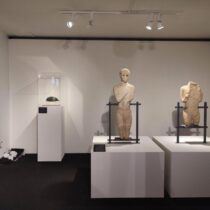The Annual Conference of Mediterranean and Levantine Cultural History in the Byzantine, Medieval and Renaissance Periods and their legacies in art, culture, history, literature and more.
2nd Annual Conference 9-12 April 2014
Following its successful launch in 2013 the new annual conference to explore the Medieval and Renaissance cultural history of the Mediterranean and Levant, Othello’s Island, returns in 2014.
The conference is organised by academics from the Cornaro Institute, University of Sheffield School of English and the University of Leeds School of Fine Art. It will be an opportunity to discuss diverse aspects of this fascinating period in Mediterranean and Levantine history with colleagues and reserach students from around the world.
Cyprus is a particularly appropriate location for the study of the Mediterranean and Levant during this period, as it was a time when the island what was arguably the zenith of its civilization and international influence. Under almost 400 years of French and Italian rule, Cyprus developed a unique courtly culture and trade links that extended throughout Europe, the Eastern and Western Mediterranean and the Near East. This had an immediate impact, but the legacy of this period lived on after the fall of Venetian Cyprus to the Turks in 1571, in literature and even muscial forms such as opera.
Yet Cyprus is only one element of the Mediterranean and Levant of interest and the remit of the conference extends to the whole of the Mediterranean, Levant and North African region, and not simply Cyprus. Therefore papers dealing with topics relevant to the period from the wider Mediterranean and Levantine region are also welcome.
This multi-disciplinary conference aims to bring together academics, researchers and research students covering a wide range of topics, including art historians, social and economic historians, museum curators, archaeologists, literary historians and others, convering not only the Western Christian Mediterranean world, but also Byzantine culture, Muslim and other societies relevant to the region.
We would also welcome suggestions from individuals or groups for parallel strands and semi-autonomous conferences which might share some of the plenary sessions and social elements of the event. For example, a strand dealing specifically with Shakespeare and the Mediterranean might be big enough to require its own semi-autonomous event alongside the one we are organising.
First Call for Papers
For the provisional list of speakers and papers so far click here.
If you are interested in giving a talk at the conference please submit a proposal for a paper. Standard papers are 30 minutes long.
We are very open minded on the topic of papers, so if you have an idea for a presentation that is not covered by the suggestions given here please feel free to submit a proposal, or contact us first to discuss the idea.
Proposals for papers should comprise a cover sheet showing:
1. Your title (eg. Mr, Ms, Dr, Prof. etc.) and full name
2. Your institutional affiliation (if any)
3. Your postal address, e’mail address and telephone number
4. The title of your proposed paper
With this you should send a proposal/abstract for your paper of no more than 300 words and a copy of your CV/resume to [email protected] with the subject line OTHELLO 2014.
All papers must be delivered in English.
The deadline for submissions is 31 October 2013.
Convenors: Professor James Fitzmaurice, Emeritus Professor of English (Northern Arizona University) and Director of Distance Learning in English (University of Sheffield); Dr Michael Paraskos, Cornaro Institute, Cyprus; Benedict Read FRSA, Senior Research Fellow, School of Fine Art, University of Leeds
Confirmed keynote speakers: Professor Rico Frances, American University of Beirut; Professor Robert Appelbaum, Uppsala University
Academic committee: Professor James Fitzmaurice, Emeritus Professor of English, Northern Arizona University, and Director of Distance Learning in English, University of Sheffield; Professor Rico Frances, American University of Beirut; Dr Michalis Olympios, University of Cyprus; Dr Michael Paraskos, Cornaro Institute, Cyprus; Silvia Stefan, University of Bucharest; Benedict Read, FSA, University of Leeds; Dr Rita Severis, Costas and Rita Severis Foundation Museum, Cyprus.





